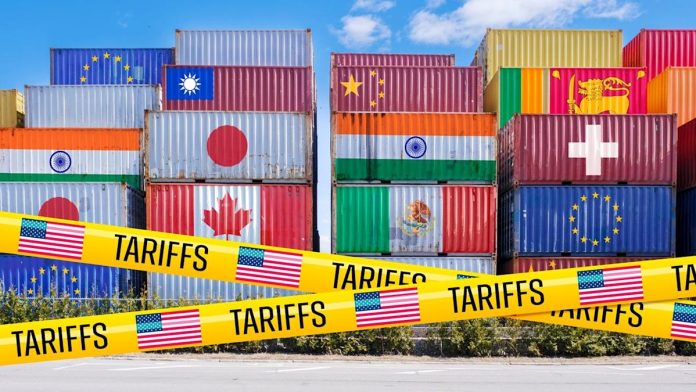The survey, which included participants from manufacturing and technologies among others, provides a comprehensive look at how tariffs are influencing supply chains and investment decisions.
According to the survey’s findings, 94% of respondents indicated that procurement of raw materials has been the most affected aspect of their supply chains.
A substantial majority, nearly 90%, reported that tariffs have adversely impacted their manufacturing and production capabilities.
Furthermore, 75% of those surveyed expressed that tariff-related uncertainty is directly constraining investment within the US. This sentiment is echoed by nearly half of the respondents who stated that tariffs are influencing their workforce-related decisions, potentially affecting employment levels.
The impact of tariffs extends beyond immediate operational concerns.
The survey found that 56% of businesses are reducing or delaying their product and service offerings.
Additionally, 47% have scaled back or are considering scaling back their US-based operations.
Partners in supply chains are also feeling the pressure, with 30% reporting a pullback in operations.
NFTC international supply chain policy vice president John Pickel said: “Volatility in trade policy, and tariffs in particular, are hurting rather than helping US companies. US-based firms create American jobs, supply our domestic economy, and foster international competitiveness by sourcing and selling in the global economy. Injecting uncertainty into this process increases costs, thwarts innovation, and threatens to bring back shortages of the products we all use.”
The international response to US tariffs is another challenge for American businesses.
Up to 60% of companies have noted that foreign countermeasures are diminishing the global competitiveness of their products and services. This has led some firms to reassess their long-term investment strategies in the US market, the survey noted.
Moreover, the complexity and overlapping nature of various tariff measures, such as those under Section 232 combined with reciprocal actions, are adding to compliance burdens.
In some cases, all respondents reported moderate to significant disruption due to “tariff stacking,” which complicates strategic planning and capital allocation.
“Rather than incentivising domestic production, the current tariff environment and broader trade policy uncertainty is paralysing supply chain decision-making, forcing companies to delay or even cancel projects that support American jobs,” Pickel added.

